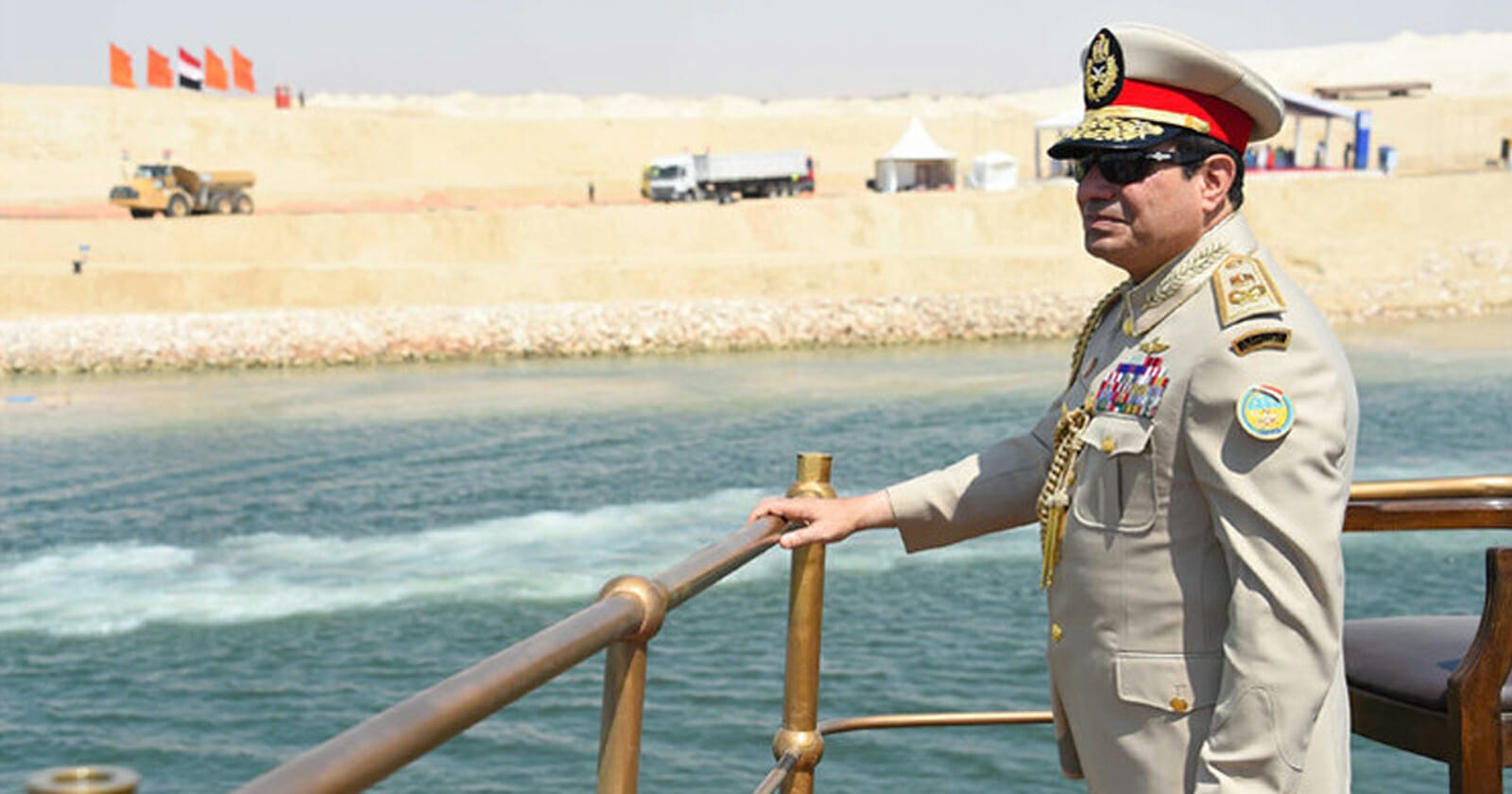Watan-The Egyptian President Abdel Fattah el-Sisi’s regime plans a new project that Egyptians see as a threat to the state’s budget. It aims to dig a parallel canal to the Suez Canal – the Suez Canal Expansion project – raising concerns of billions of dollars being wasted again.
This comes after the failure of Egypt’s giant projects, directly commissioned by Sisi without any studies, leading to a debt disaster crippling the Egyptian economy, on the verge of collapse.
Many Egyptians have expressed their rejection and criticism of the proposed project on social media, arguing that the “New Suez Canal” project, a similar initiative to the current proposal, was the cause of the foreign currency crisis, prompting the flotation decision in 2016.
خطورة مشروع حفر قناة موازية لقناة السويس
مشروع حفر قناة جديدة موازية لقناة السويس “ازدواج القناة” الذي أعلن الفريق أسامة ربيع رئيس هيئة قناة السويس عن إعداد دراسة له لعرضها على السيسي يكشف لك مستوى الرعونة والاستهتار والغشومية الذي تتعامل به سلطة العسكر الحاكمة مع مصر مع أمن…
— جمال سلطان (@GamalSultan1) March 4, 2024
“Wanton squandering of public money”
Egyptian journalist Gamal Sultan affirmed on the “X” platform that the project “is indeed very dangerous to Egyptian national security and will reinforce the isolation of Sinai, increasing the risks of its occupation (Sinai has been occupied twice under military rule).”
He also believed that the project “weakens Egypt’s ability to protect and defend itself militarily and security-wise.”
Sultan explained in his tweet: “Crossing one water barrier in the October 73 war was described as a military miracle, so how about when you have two water barriers ahead of you, crossing them would be impossible, no matter how weak the opponent.”
The Egyptian journalist added about the new Suez Canal project: “This project is a wanton squandering of public money in a poor country dependent on aid and drowning in debt, facing extremely difficult financial obligations regarding the food, drink, and medicine of its citizens even within its minimal limits. Its current ruler is forced to sell parts of the homeland and its properties to foreign countries to repay the debts that have entangled the country or to try to save it from sinking.”
Gamal Sultan wondered: “What folly is it to think of borrowing several more billions of dollars, worsening the country’s plight, to make a project that might – I repeat: might – improve traffic flow in the canal after thirty years.”
Dr. Yahya al-Qazzaz said, “The duplication of the Suez Canal, with a length of 192 meters, at a time when the number of transiting ships is decreasing and financial resources are dwindling, is plunging into further debt, justified by offering it for sale under the guise of partnership and management due to funding shortages and completing facilities.”
رئيس هيئة قناة السويس، أسامة ربيع لـ”الشرق”: مشروع ازدواج #قناة_السويس بالكامل تحت الدراسة حالياً والتي قد تنتهي خلال 16 شهراً، وسيمول من ميزانية الهيئة بالجنيه المصري وليس ميزانية الدولة@mfathy_tw#اقتصاد_الشرق pic.twitter.com/yvBF1QZeeq
— Asharq Business اقتصاد الشرق (@AsharqBusiness) March 4, 2024
The Egyptian politician emphasized, attacking the Sisi regime, that “Egypt’s sale will not stop until the departure of a regime addicted to selling or until the people stand to prevent the sale.”
